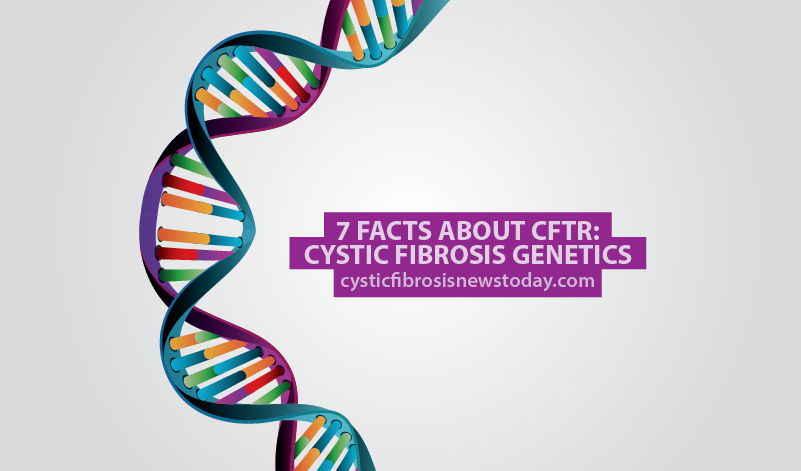7 Facts About CFTR: Cystic Fibrosis Genetics
Written by |

What is CFTR?
1. Cystic fibrosis transmembrane conductance regulator (CFTR) is a gene that regulates the production of a protein which works as a channel for the membrane of cells in the body that create mucus, saliva, sweat, tears and digestive enzymes.
2. This conductor leads negatively charged particles, known as chloride ions, into and out of the cells. These movements are what control the water displacement in the tissues, which is needed for the cells to produce thin mucus that flows freely.
Learn more about how full gene sequencing might detect CF mutations in babies.
How Does CFTR Impact Cystic Fibrosis?
3. The exact cause for the development of cystic fibrosis isn’t yet fully understood, but the disease is known to be associated with a mutation in the CFTR gene.
4. Over 1,000 gene mutations have been identified in CF patients, most of them are related to a single change in amino acids, which are protein building blocks.
How Does CFTR Impact Cystic Fibrosis?
5. These mutations can mean that there is an alteration in the CFTR protein or the complete absence of a part of the DNA in the CFTR gene.
6. The most common CFTR mutation that causes cystic fibrosis is known as delta F508 and it results in the deletion of one amino acid at position 508 in the CFTR protein.
7. Due to the absent amino acid, the channels are broken and the transport of chloride ions is not possible.
Cystic Fibrosis News Today is strictly a news and information website about the disease. It does not provide medical advice, diagnosis or treatment. This content is not intended to be a substitute for professional medical advice, diagnosis, or treatment. Always seek the advice of your physician or other qualified health provider with any questions you may have regarding a medical condition. Never disregard professional medical advice or delay in seeking it because of something you have read on this website.






